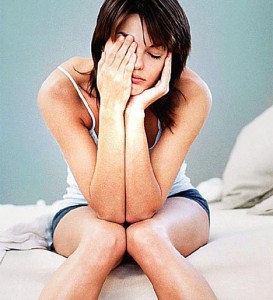-
Can’t Sleep? Some Helpful Cures For Insomnia
Saturday, April 13th, 2024by Dr. Gregory Brown
If you have insomnia, then you know how debilitating this condition can be. An increasing number of people around the world are afflicted by this sleep disorder. Lack of sleep can affect every aspect of one’s life, which is why it’s vital to overcome this condition.
 The truth is that the increased stress of modern day living often makes it hard to sleep. Unfortunately, people often seek quick relief that doesn’t go to the root of their sleep problem. The good news is that there are cures for insomnia, and many of them require simple common sense.
The truth is that the increased stress of modern day living often makes it hard to sleep. Unfortunately, people often seek quick relief that doesn’t go to the root of their sleep problem. The good news is that there are cures for insomnia, and many of them require simple common sense.Causes of Chronic Insomnia
There are both physical and psychological reasons for insomnia. Temporary insomnia is normally due to a one-time life event, while chronic insomnia is typically caused by underlying mental or physical issue.
Psychological problems that can cause insomnia include anxiety, depression, chronic stress and post-traumatic stress disorder. Medications that can cause insomnia range from antidepressants (like cold and flu medications that contain alcohol) to pain relievers that contain caffeine (e.g. Midol or Excedrin). Diuretics, corticosteroids, and high blood pressure medications can also affect healthy sleep patterns.
Medical problems that may contribute to insomnia are asthma, allergies, chronic pain, Parkinson’s disease, hyperthyroidism, and acid reflux. Sleep disorders including sleep apnea, narcolepsy and restless legs syndrome can also be major factors in chronic sleeplessness.
Of course, stress and personal problems at home or at work can contribute to insomnia. Even though a person may be very tired, they struggle to fall sleep or else spend the night tossing and turning.
This chronic lack of sleep means that you are worn out the following day. Emotional and physical problems can arise from prolonged poor sleep, and a person’s work and family life may also suffer.
Ideally, personal problems and related stress should be handled before going to bed, otherwise sleep patterns will be affected. Clearing one’s mind through biofeedback can be a good way to overcome insomnia. It’s important to get into bed in a relaxed frame of mind.
Some Simple Cures for Insomnia
Many times, trouble falling asleep is a consequence of habits that have built up over time. By embracing certain lifestyle changes and breaking some bad habits, a good night’s sleep can be achieved.
To begin with, make sure that you go to bed and get up at exactly the same time every day. Train your body clock to expect sleep at the same time every night, and you should sleep better.
Another important insomnia tip is to avoid taking naps during the day. If you go to sleep other than at your regular bedtime, your sleep cycle will be thrown off and you won’t be able to sleep normally. This advice holds true for all types of sleep disorder.
Exercising and eating a healthier diet will also help you to sleep better. Exercise releases stress and makes your body tired and needing sleep. Eating fruits and vegetables and avoiding sugary snacks and junk food will also lead to a more natural sleep cycle.
Avoid caffeine as much as possible. If you want to drink a cup of coffee in the morning, that’s OK, but don’t overdo it. And don’t consume any caffeine at all in the evening before bed. Cut down on alcohol and tobacco, because both of these can act as stimulants that “wake up” your body instead of allowing it to go to sleep.
Relaxation and stress management techniques can help you to sleep better at night. For example, before going to bed, try activities like reading or listening to soft music to help your mind and body prepare for sleep.
Deep abdominal breathing can also help you to relax at bedtime. Close your eyes, and take slow and deep breaths. Try to breathe in through your nose and out through your mouth.
Progressive muscle relaxation is another simple cure for insomnia. Starting from your feet and working your way up, tense the muscles as tightly as you can. Hold this for a count of 10, then relax. Work your way up from your feet to your head, progressively tensing and relaxing every muscle group in your body. When you’re finished, your entire body should be in a greater state of relaxation.
Remember, don’t take sleeping medicine or sleeping pills unless absolutely necessary. You will end up developing a tolerance and a need for these sleep aids, and it may become difficult to fall asleep without them. Natural insomnia cures are always preferred to a prescription from a doctor.
Finally, make sure your bedroom is a peaceful place that makes you feel relaxed. Don’t do desk work, watch TV or other such activities here. Your bedroom should have only one purpose, and that is a quiet, comfortable place to sleep.
(published December 28, 2010)


